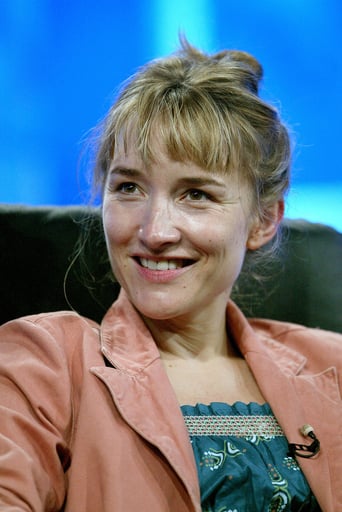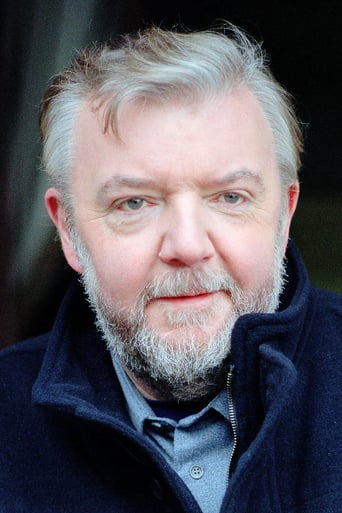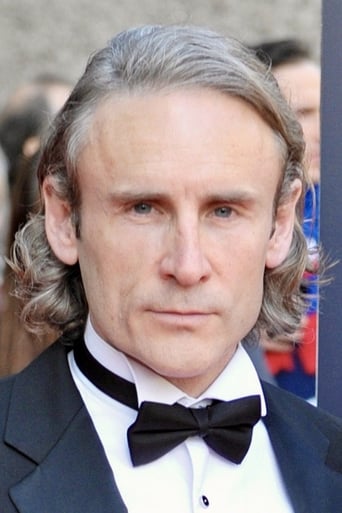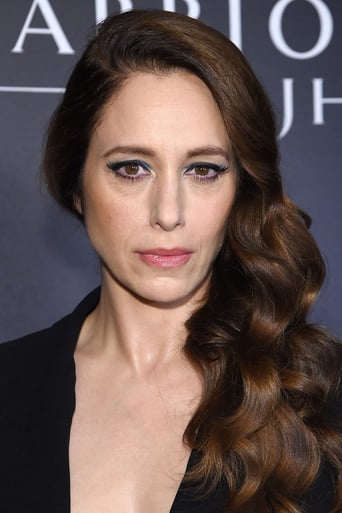Voxitype
Good films always raise compelling questions, whether the format is fiction or documentary fact.
filippaberry84
I think this is a new genre that they're all sort of working their way through it and haven't got all the kinks worked out yet but it's a genre that works for me.
Haven Kaycee
It is encouraging that the film ends so strongly.Otherwise, it wouldn't have been a particularly memorable film
TheLittleSongbird
The Woodlanders is a complex but beautiful book, apparently Thomas Hardy's personal favourite of his work and you can see why(with me though it's Tess of the D'Urbevilles and Far from the Madding Crowd). Any adaptation of any book by any author deserves to be judged in some way on their own. Compared to the book this 1997 film adaptation of The Woodlanders does fall short, but it still has a lot of great things about it. The most underwhelming aspect was the ending, which was far too frantic- the adaptation also takes too much time to set up, so there were a couple of pacing issues here and there- and sudden, anti-climatic too. It would have been more powerful if Marty South's declaration of undying love was kept intact and if there was a sense of Hardy's depiction of how devastating and too-late-to-change coincidences can be. The film does feel too short, which might be a reason for why the ending was as it was and the lack of depth(too much of skimming-the-surface-but-not-enough-meat quality to it) and why characters like Mrs Charmond and Marty South seemed too briefly introduced and underused. The production values however are exquisite, especially the rustic and colourful scenery and cinematography that is sensitive and shimmering that strikes the right balance between not being too cinematic or too TV bound. The interiors are appropriately atmospheric(in a gloomy sort of way). The costumes and period detail are evocative, with little over-bleakness or too-cleanliness about them. And the lighting visually appeals- making long shots/scenes even more interesting than they already are- and matches the moods of each scene. George Fenton's music score has a lot of beautiful sweep and passion, underlying the tragedy of the story convincingly but not obviously, unsurprising seeing as Fenton's music has always had that effect, while the script is literate and true in spirit to Hardy's prose. The story may lack the depth of the book and the beginning and end have pacing lulls, however it is still told beautifully and compellingly with faultless mood contrasts, and deserves further credit for matching the slow but spacious pacing of the book, handling the romance subtly, the rural if at times gloomy atmosphere it evokes and for how well it makes an effort to convey how the characters would interact, speak and behave. Phil Agland does a solid job directing, really not bad for a feature film debut. Rufus Sewell is a smouldering and affecting Giles, the character we feel the most for. Emily Woof's Gracie is luminous and strong-willed as well as equally touching, it's a different character for her and she acquits herself very well. Cal Macaninch is suitably sly and snobbish, while Polly Walker makes a sinister impact, Jodhi May is a sympathetic Marty South(more so than in the book) and Tony Haygarth makes for a very ideal father-figure, of the firm yet warm and well-intended kind. All in all, falls short but it is well made and earnestly done. 7/10 Bethany Cox
miss_lady_ice-853-608700
There's something beautifully quaint about this film, based on a Thomas Hardy novel. It was made in 1997 but there's none of the sexing-up you'd expect in a modern film.The Woodlanders are the inhabitants of a small village. Country folk Grace Melbury (Emily Woof) and Giles Winterborne (Rufus Sewell) were childhood sweethearts but when Grace comes back from boarding school, she finds herself unable to mix with Giles and the other villagers. Her father (Tony Haygarth) encourages her to marry new doctor Eldred Fitzpiers (Cal Macaninch) who is more befitting of her new educated self. However Fitzpiers cannot cope with mixing with the woodlanders, and Grace's heart pangs for Giles once more.There are two things Thomas Hardy is famous for: gloomy fate and Wessex, a fictional version of South West England. The third thing that he should be famous for is romance. The film is achingly romantic as everybody pines for the person that they cannot have. There's a secondary character who is also in love with Giles- odd reclusive Marty South (Jodhi May), who shares Giles' passion for nature. I would like to have seen more of her character but maybe that would just add to the aching tragedy of it all.Apart from the tragic finale, the gloomiest moment has to be when Giles' house gets demolished and Mrs Charmond (Polly Walker), a wealthy patient with her eye on Fitzpiers, complains that his house is blocking the road- cue a shot of a rotting pile of wood.In a sense, the film is a bit like Marty South: odd, obscure, slow and innocent. The slow pace works in a sense as you soak up all the beautiful cinematography and the gorgeously tragic score. Characters never have massive rages of passion- in that sense, it's a little bit like Chekhov. Life, miserable as it is, goes on.All of the characters are sympathetic, even Dr Fitzpiers. Macaninch's performance is enigmatic: on one hand, Fitzpiers is a cruel and adulterous snob; on the other, he's a man of science who just doesn't understand the old-fashioned ways of the country people. Grace's father does her the most harm, forcing her to better herself because of his own feelings of inferiority, and yet Haygarth gives a warm and touching performance.As the leads, Woof is adorably childlike as Grace and Sewell makes for a nice simple countryman. The film- I don't know the novel- is all about simplicity and innocence. The world of sexual desire is not present here, making the intrusion of Mrs Charmond all the more unpleasant. Her garish red dress is completely out of place in the charming pastel attire of the villagers and one longs for her and Fitzpiers to leave so we can hang forever in that wonderful idyll.My criticism would be that they could have fitted more in. The film seems to touch on the novel rather than portray it, and maybe a more conventional dramatic pace might have helped there. Maybe more probing of the social issues would have been good- really, just more of everything.This is definitely a Sunday afternoon film- a slow languid weepy, just like the good old days, that you can watch with anyone of any age. But to be honest, it's the perfect film to watch on your own as you allow it to wash over you.
Amy Adler
Giles (Rufus Sewell) is the right-hand man to a successful, rural logger. A handsome gent, he and the business owner's daughter, Grace (Emily Woof) grew up together and became very attached. But, the logger always had a chip on his shoulder that he was not refined so he sent his only child to a finishing school for some years. Now, Grace is coming home and Giles is eager to re-establish a relationship with her. But, alas, the beautiful young lady, although quite kind, is hoping to make a better match, having her head filled with bookish nonsense. This stuns Giles but, he keeps on keeping on. Even when he loses his home to a local woman's pettiness, the handsome man stays true to Gracie and his community. As bad luck would have it, there is a new doctor in town and once Gracie meets him, she sets her sights on him and the interest is mutual, resulting in marriage. How can this be, when clearly the doctor is a somewhat pompous and flawed individual and Giles is such a handsome, true-to-you kind of male? This is a complicated tale from the great writer, Thomas Hardy, of 19th century England. Hardy excelled in penning books about ordinary, country folks who sometimes had terrible exchanges with the wealthier, more powerful classes. Tragedy was often the result and the story here is much of the same. Admirably, this film is never melodramatic or forced but tells the complicated story very well. Also, the cast is quite wonderful, all of them, even though Sewell or Polly Walker are the only known actors. Then, too, the setting in the English countryside is very lovely and authentic, showing the beauty and the rustic nature of the existence in another time, another place. Costumes, too, are sensational, the productions values are very fine, and the script and direction are most competent. If you adore the classics, romance, or historical tales, you would do well to search for the Woodlanders. It is a powerful story that would spark a most animated discussion, even as it entertains.
didi-5
'The Woodlanders' was one of Thomas Hardy's most involving novels, a key novel in his Wessex series concerning the land and the people who struggle with conscience and passion within it. This movie by Phil Agland takes the pace of the book but doesn't necessarily serve it well as a film.
Performance-wise the cast is well-chosen, with gorgeous Rufus Sewell in the lead role as the brooding woodman Giles, who keeps his feelings for the now-better-than-he Grace (Emily Woof) to himself; as Fitzpiers, Cal Macaninch makes the character just as unsympathetic as he was in print (a close cousin to the Brontes' Edgar Linton is this starchy doctor). Jodhi May completes the mix as Marty, the village girl who remains doggedly devoted to Giles.The countryside is photographed well but the momentum lacks the cinematic scope which would have made this a truly interesting film.




